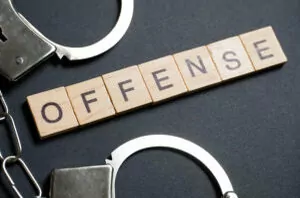 The Truth Behind False Confessions
The Truth Behind False Confessions
A confession is the “gold standard” for law enforcement authorities. It’s the one objective that detectives go for when they have a suspect in front of them.
However, the truth is that the gold standard is more often tainted with rust than anything valuable.
What happens? A person finds themselves in a threatening situation, and they become willing to say anything to get out of the situation with the hopes of “fixing it” later.
False Confession
A false confession is an admission of guilt for a crime for which the confessor is not responsible. Often obtained through coercion, the mentally ill and incompetent are the most vulnerable to giving false confessions.
False confessions fall into three types:
Roughly 25 percent of convictions are based on false confessions. The high pressure applied by law enforcement often pushes innocent individuals to utter a false admission of guilt.
Case Examples
The U.S. Supreme Court became linked to the issue of false confessions about 80 years ago.
The first ruling about false confession by America’s Supreme Court came in 1936 in the Brown v. Mississippi case. The decision established conclusively that confessions obtained by physical brutality violate the Constitution’s Due Process Clause. In the case, defendants, Arthur Ellington, Ed Brown and Henry Shields — three black tenant farmers — were sentenced to death for the murder of Raymond Stewart — a white plant in March 2934.
On April 19, 1989, five teens were arrested for attacking and raping a jogger. Each confessed and implicated the others. They later recanted their confessions and claimed innocence. In 2002, Matias Reyes, a convicted murdered, admitted that he was responsible for the rape and attack of the jogger.
Convicted in 1990 of raping and strangling a high school classmate, Deskovic was sent to prison for 15 years following his confession after hours of interrogation without an attorney present. Deskovic was ultimately released and awarded $17 million. Deskovic used the money to go to law school and then set up a foundation to assist those imprisoned based on false confessions.
Sentenced to death for his parents’ murders, Gauger was interrogated for over 22 hours and gave a hypothetical statement which the police took as a confession. Gauger’s conviction was overturned in 1996, and Gauger was allowed to go free and was finally pardoned in 2002.
Kirstin Blaise Lobato — 2001, Nevada
Lobato, from Nevada, is serving time for the 2001 murder and mutilation of Duran Baily. At her first trial in 2002, she was convicted of first-degree murder and given 40 to 100 years in prison. In a retrial four years later, she was convicted of the lesser charge of voluntary manslaughter and sentenced to 13 to 45 years.
Her case has received notoriety because of the amount of evidence that points to her innocence.
During a police interrogation, Lobato admitted to stabbing a man in the groin. Police too this as a confession to Baily’s murder.
The entire story has come out in a book about the case. Kirstin Lobato’s Unreasonable Conviction by Hans Sherrer, published in 2008, has been downloaded over 50,000 times and is available free on the website Justice Denied .
Bill James, writer, and lecturer, sums the situation up best: “There are, I believe, many more false confessions to murders than true confessions.”